Thank you! Your comment has been submitted successfully. You should be able to view your question/comment here within a few days.
Error submitting comment. Please try again momentarily.
- All Info
- Reviews (71)
- Q & A (0)
- Videos (2)
- Photos
etrailer Trailer Bearings Races Seals Caps - LM11949
- Bearings
- Standard Bearings
- 3000 lbs Axle
- .750 Inch I.D.
- Bearing LM11949
- etrailer
- Race LM11910
High-quality, tapered roller bearing is designed for high-speed use. Replacement part uses industry-standard number.
Features:
- Inner diameter: 0.750"
- Matching race (sold separately): LM11910
- Application: outer bearing for AH15450E agricultural hub
LM11949 Replacement Bearing
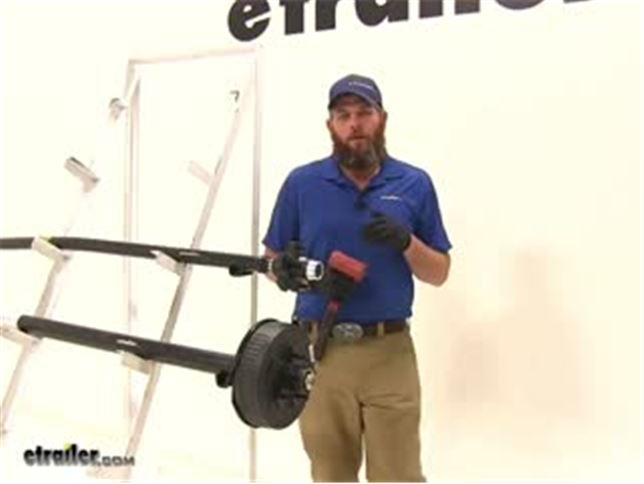
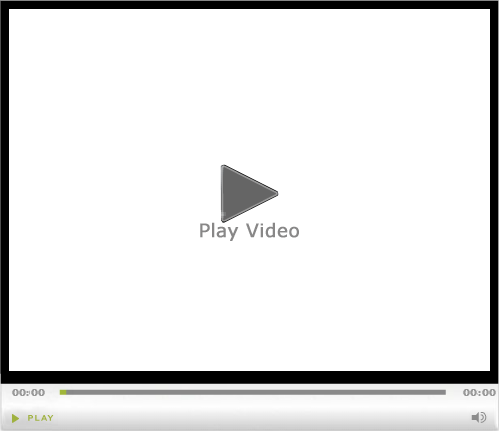
Videos are provided as a guide only. Refer to manufacturer installation instructions and specs for complete information.
Video Transcript for Trailer Bearings Races Seals and Caps Rebuild
Speaker 1: Today we're going to take you through the rebuild process on a couple of hubs. We've got an idler hub, and here we've got a hub and drum assembly. Works with electric rigs, but this can also work for just standard discs, if you've got a disc brake style setup.Basically what we're going to show you is how to get all of the bearings out. How to remove the seal. How to remove the race's if they're damaged, then get them replaced in the proper manner. We'll show you how to use an easy loop hub, which we have here.The first thing we are going to need to do is, get the grease cap off the end.
It can have either a rubber plug in it like this one does, or it can be a solid metal cap.These are pressed fit in there, basically by tapping on them on the back side. To remove them, a deadbolt hammer is typically what we're going to use. We're just going to start tapping as we go around. You'll see a little separation start right here, and slowly it'll work it's way off.Now the next step's going to vary a little bit depending on your axle setup. Do you see this is going to have a keeper that goes around the nut.
And that prevents that from being backed off, or removed. A lot of times you'll have a castle nut, which will have just little tabs that stick off, and there will be a cotter pin that passes through it. Just depending on your application, you need to get the keeper for the nut off. This style we just kind of pry out. A cotter pin you would just remove of course.Once we have that off ...
We'll start to take off the nut here, and the washer that's in behind it. Now yours should look a whole lot more dirty than this. There should be a lot of grease packed in, and through the hub, this one's brand new. We thought it'd be nice to show you the components before the grease was on .. Of our washer that comes off.And then here we're going to have our outer bearing.
Continue to pull that. We're gonig to have our inner bearing here. That sits in the backside of the hub. And we didn't put it in yet, we will show you how to put it in. But a seal would typically be covering the backside here. We'll show you how to use a seal removal tool, or another tool. To get that pried up and out. To get an access to that inner bearing.Now for a drum style like this, that process for disassembly is going to be just the same. One thing to keep in mind if you're using a disc brake setup. You'll have to remove the caliper before the disc is going to come off.Now once we have the spindle exposed, as we said this is going to be really greasy. We want to get all the grease removed, and the first thing we'll do is inspect it. We want to make sure that it looks just like what we have here. Everything's nice and smooth. We don't see any kind of discoloration, or any marring on the metal. Indicating that our bearing's got hot.If you do have any of those symptoms, at this point it's time to replace those bearings. You don't want to repack them. Get new bearings, and put in there. You might have a bearing that's come apart in here. Another surface to ensure is in good condition, is where your seal is going to go. That helps seal all the grease inside of our hub. With a damaged or broken seal, that grease is going to seep out. Either out of the hub, or in this case into our brake assembly.Now if your axle has brakes, we're also going to check the disc. Make sure it doesn't have any issues, or your hub. And this is going to be a hub and drum assembly. The brakes are going to ride on this machine surface. You're going to check that for signs of excessive heat, discoloration, or cracking. And this is our magnet surface. We'll check that surface for the same issues.Now inside the hub regardless if it's a disc brake, it's a drum brake like this. Or just a standard idler style hub. You're going to have an outer race. Would be right here, it's a small tapered piece of metal your bearing sits in, and rotates on. That's basically the outer portion of the bearing.You have the same thing here on the backside. This is called the inner race. Now if those show any signs of wear, overheating, or cracking. Those are also something we'll need to replace, which we'll show you how to do in just a minute.Now, with your brake assembly exposed, if you do have electric brakes like we have here. It's a good idea to check all the components for wear, cracking, maybe missing pieces. Check your pad thickness to make sure those are in good shape. Basically if you have a non working brake assembly and you put everything back together, you're just going to have to take it apart and do it all over again to get back to the brake assembly. This gives you a really good option to be able to change them out.And most applications are going to use a four, or maybe a five bolt flange to hold them in place. And you'll just remove the lock nuts, or sometimes you'll have a hex nut with a lock washer. You want to remove those, and then simply slide your assembly off after you cut the wiring.The friction material itself should also be checked for any kinds of cracking, or overheating. If you have any grease inside the system at all, it's likely it's gotten on those pads. It's a good idea to get those changed. Now as far as the removal of the races go, it's going to be just the same whether we're using an idler style hub like we have here. A drum brake like we have here. You can basically see where the idler is, here in the middle of the hub. It's going to go all the way around there, and we just have this extra material here to provide our braking surface.Now if you're doing a disc brake style job again, it's going to be just the same here with the races living inside of the actual hub portion. You'll just have the discs there for the brakes to make contact. We're going to use this little bit smaller one, it's a little bit easier to manage to show you how to get these out. We've talked about where the races are. The outer here, the inner being closer to the inside, but on the backside of the race there's a little lip. That lip's meant to stick out just a little bit further than the hub, and provide us an area to put our tool on, and help to drive that out.If you look all the way through there on that inner race, you'll see that little lip that sticks out just from the hub slightly, and it gives us enough area to use our tool on. Now generally to remove these you're going to use a punch, similar to this. Some guys will use a screwdriver. Or a piece of pipe. If you have a piece of pipe that's small enough to fit inside of that diameter, you can take that down through and allow it to rest on that lip.Use our punch, and then just need a hammer. And we'll start working that out. We're going to tap all the way around. Kind of equally, and evenly apply the force to get it to come on out of the bottom for us.You can see now as it starts to come out there's going to be a little gap created between the hub and the race. And we can just keep going, bringing it on out. Then you can inspect the inside of the hub surface there. Make sure no damage or anything has occurred, and repeat that same process for the outer race if you plan on removing and replacing that one.Now in the outer flat edge, you can see we're going to have our tapered edge on this side. If we roll our race over to the flat side, typically there's going to be a manufacturers part number on there. That will help you identify which race it is, that you need to go back in your system. If those are rubbed off, worn off, if you can't read them. You can measure the outside, to outside diameter of the race here. It's a good idea to use a micrometer to get it exact.Now here's your basic micrometer. And again, the outside of the race is what we're going to need to measure. You want to go . I set the thickest point there. Looks like this one's going to be about 1.98. That's going to be the measurement you'll want to supply.Now while we've got this out, let's also look at the proper way to measure our bearing. Instead of the outside for the bearing, we need to measure the inside diameter. That's going to be pretty simple. Let's pull that out, find the largest measurement we can. Which here, looks like it's going to be 1.03. With that information, we'll be able to get the correct bearing, and the correct race, so they'll fit together properly and make a full bearing kit for us.Now here's the race, we're going to show you how to get this put back in. Basically just going to press fit inside of our hubs. We need to get it down on there. Kind of like that. And you'll have a couple options. A lot of times you're going to see do it yourself or at homer, just going to use a wooden block. Just place it on there. That's going to get you started, but at that point you'll struggle in getting it to go all the way down into it's seat.Now to take care of that problem, there are several seal drivers that are available. Seal and race drivers that are available out there on the market. It's designed to fit down inside of our race, inside of our hub and get it down there where it needs to go. This is part number ptw83020, has several different sizes, even if you have multiple trailers it's going to do the job.Now the side with the angle on it, is designed to fit down inside of our race. If we use the other side, that's going to be for driving your seal into place. Just want to hold it, and take it on in with your hammer. You'll see, you just want to insure that our race is all the way up against that line on the hub where it's supposed to mate to.Now when it comes time to pack your bearings you're going to have several different ways of doing this. You can just use your hand, is the traditional method. That's going to be the method probably reserved for the very occasional trailer work kind of situation. If you do it once or twice a year, probably get away with it that way.Next you would go to a, kind of a sandwich funnel style almost. If you look inside of there, you can see the bearing. It's located between the two pieces. Just use a grease gun. Start filling that with grease, and that's going to fill our bearing for us. And the third, with this one you're just going to place your bearing down and in. It should be pretty close to center. And then we've got our cone her that's going to go down and secure that.Now I think this style, wastes a little bit more grease than what this style will. This has a dust cap. You can see, you can keep your grease in there, put your dust cap on there and save it for later use. This will be if your going to do it every couple years. And this particular style would be if you're a more regular user.Let's start by showing you how to use a bearing packer. Similar to this. Again, we've just got our grease inaudible 00:11:07 here on the top. And then just slowly start to fill it. Now I like this style quite a bit. I think even regular users might enjoy it, because you can get a really quick visual look at that bearing. You're not going to have to overdo it, or have to much grease.You can kind of see in there now, we're starting to get grease to come out of it. Couple more pumps, we'll be good. You can see we've got grease coming out all the way around. Where all of our bearings are. Got a little bit of excess there. Just take that around the outside of it. And then we should be able to lift it off. And now you can see what we we're talking about. Just a little bit of excess there, that you're just going to wind up wasting.Now we'll take our bearing, we're going to place it right down in our race. And then we'll cap off the back with our seal. Right now our seal's going to fit in just like our race did. It's going to have a little bit of a pressure fit to it. Now very often in this situation, I see people using the four by four method. Kind of here, just placing that on and tapping it. As an option though, if you do have one of these. You can see that's designed to fit right on the top of the seal. And help drive it in.The biggest thing here is, just going to be getting it driven in squarely. You can see, this side's in a little bit further than this side. I'm going to start this side first. Now since we didn't have the opportunity to show you before, we're going to take a look at pulling a seal. Now this is a seal puller, we carry this on our website part number ptw1219. This is meant to hook underneath the seal. And then you kind of pull up on it, and just like our race you'll have to work all the way around that edge. Just bringing it out a little at a time.If you don't have that available. Another option would be a screwdriver. You just kind of get that under the seal, and turn it. And see, that'll allow you to also pop that out. We've taken care of our race. Our inner bearing. Our seal. The last component, before we put our hub back in place is going to be our outer bearing. Now with this bearing, I'll show you the hand packing method.This is definitely . Slightly dirtier method than the bearing packer. When we get grease on our hand we want to look at the larger side of the bearing. This is the smaller side. We have a larger side In between the inside and outside there's a gap. We can see our rollers in there. We want to grab that, and use that gap and shove grease inside of it. Now this is going to take a little bit, you want to work in the same spot until you get the grease pushed all the way through. We can see on the top there we've got a little bit starting to come through.And once we push it in the bottom, and you see it start coming out the of the top in those little drips, it's going to indicate that, that section's fully packed. Just need to work all the way around their outside edge now and do the same thing. Alright, once that's all the way around . The bearing will be ready for use.Now one more thing I like to do. We can see our inner bearing there, and our outer bearing. Well between the two, got a pretty big gap in there. If you'll take a . Pretty good amount of grease. We're just going to go all the way around. See how we can go all the way around the inside and just line that really well. The more grease we have in here, the less chance we have of any moisture getting in there, which can cause corrosion, rust, pitting. Pretty much things we do not like when it comes to bearings, races, and hubs.Put plenty of grease in there. And then this one does have the easy lube spindle, that'll even fill it in more. Now we can get our assembly slid on. I like to keep my thumbs on that outer bearing, just to prevent it from . inaudible 00:15:28 pushed off there. Now we can put on the original hardware that we removed, in taking off our hub the first time. In our case, we had our washer and our nut.Now most commonly you'll see pliers similar to this being used. We basically want to get that tightened down. Once it's fully tightened down you'll feel some resistance in the hub. We back it off just slightly. That'll give us a little bit more freedom of motion there. Something you don't want however . Is any movement in, or out on your hub. You want to be sure that everything is compressed, and you don't have what's called end play. Which would be the play in and out.Once we've got that set, then you'll put on whatever tight keeper yours came with. Get that put back in place. Now with an easy lube style hub, you're going to place your grease gun on the end, and then you can just fill the remainder of that hub up.Now for your typical applications, you're either going to have a solid cap, or a cap that'll have a rubber plug in it. A solid cap's going to be for an axle without the grease inaudible 00:16:51 here on the end. Goes on there. Just knock it on with your rubber mallet. Same with the one with the plug. Just gives you a removable area there, be able to cap that off.We'll show you how to put that on. Now as alternatives as well, a lot of times on boat trailers and marine kind of situations. You'll see a bearing buddy. This is going to apply a little bit of pressure on the grease, you'll fill it up. This kind of comes out just a little bit. That applies constant pressure on the grease to make sure we don't have any air, or anything like that. Then there is also an oil bath hub available. Now this is going to be for use with seals that are going to be designed specifically for oil bath use. You'll have to change that seal.We're using a double lip seal. There are also single lip seals available. Of course a double lip seal is going to give you just a little additional security. Keep that in mind when you order. But let's get this knocked on there now so you can see how that works. We just want to take the cap, we're going to center it. This is going to be very similar to what we did with the seal. And then just gently start tapping it around the outside. And it'll seep down on there for you.It's really going to be the same thing that you'll do with any of the end caps. Now with this side done, it's a good idea to take care of all the other hubs. Get them all on the same maintenance schedule. And as long as you'll periodically check the grease, take your trailer out for a trip occasionally. Just to keep everything lubricated. It should extend the life of these parts, and give us years of good service.
Customer Satisfaction Score:
99% were satisfied with this product
1% of customers were not satisfied
- Wrong item was ordered
- etrailer mistake
- Did not fit
Customer Reviews
Replacement Trailer Hub Bearing - LM11949 - LM11949
Average Customer Rating: 4.8 out of 5 stars (71 Customer Reviews)
High-quality, tapered roller bearing is designed for high-speed use. Replacement part uses industry-standard number.They had a hard to find hub for an old boat trailer axle. The seal was missing from the package, they wasted no time getting me what I needed.
I would buy from them again!
A simple bearing pack on an early 50's travel trailer axle turned nightmare. My local guys just said sorry. However, etrailer had the parts in stock at a great price. The site is very user friendly. What made finding the right parts easy was their excellent and complete listing of sizes and dimentions of seals, bearings and hub caps etc. that I needed. I found the parts to be of high quality. This combined with unprecedented customer service and fast shipping has earned them my future business. I would highly recomend them as a go to site for all your trailer needs. THANKS.
I am very satisfied with the purchasing process through etrailer.com. finding the bearing that I needed , ordering it and then having someone personally contact me to let me know that it was shipped along with the tracking number and his phone number if I incurred any problems made this smooth and problem-free. I also really appreciate The Helpful videos. You do it right etrailer. You will continue to have my business thank you very much
Customer support for finding replacement bearing, races and grease seals for a 1973 Apache popup trailer were spot on. All items fit perfectly, delivery was quick and customer support excellent. Thanks to all!
Bearing LM11949
Race LM11910
Bearing L44649
Race L44610
Grease Seal - 10-9
I have a late 70's boat trailer that needed new tires and wheel bearings... no kits available so I called etrailer and talked to Kayla. We figured out everything over the phone, Kayla got all the the correct bearings and seals to me fast! The tires I ordered where out of stock, but I was upgraded to the galvanized wheel for free!!!
Thanks Kayla!!!
Bearings are very quality. I used them on my Sears gamefisher boat trailer.
The trailer I'm rebuilding had obsolete bearings, but using a caliper I was able to find everything on etrailer. My local trailer supply place was ridiculously over priced so I went with etrailer. Thank You for the quick delivery.
I had a non standard axle, so had to call and verify bearings. Was very pleased with the service and that the person on the other end was very easy to understand. Shipment was fast and the parts fit. The price was very competitive.
Needed to replace the bearings on my trailer wheels. These were an exact replacement and worked great. Wish they were made in the USA, but other than that, I’m very happy with them.
bearings were not individually wrapped and just thrown in a bag . metal on metal is not good they did not come with the outer race and are of very poor quality. shipping was on time .


Jenny N.
11/3/2021
I will have our customer service team reach out to you.
etrailer had this part which I could not find locally. It was a perfect fit and sealed against the axle well.
Bearings fit perfect!
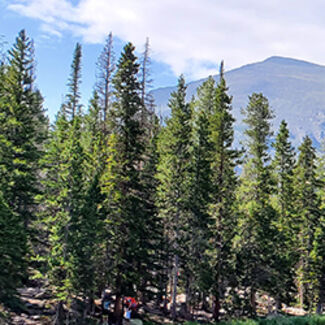
Don M.

10/4/2017
Everything is Great!
The bearings,races,and remainder of this order was perfect.
However the seals were the wrong size, I sent them back for credit.
The bearings were delivered on time. There was very good communication as to the shipping dates and delivery times and when the bearings came they were exactly what was ordered.
Website is easy to use and my order was filled and sent in two days. Received parts ordered and was able to rebuild my boat trailer hubs with ease.
Received Trailer bearings and misc parts as ordered.
good bearings I use them in off road highly abused environment and replace annually as preventative maintenance have never had one fail

Bearings fit perfect. Your catalog makes it easy to find correct parts the first time.
The bearing was a direct fit with no problem installing it. I hated your delivery method. UPS MAIL INNOVATIONS SUCK. As I was paying shipping the mail innovations shouldn't have even been on the table. Not that it mattered, but it took longer than it should to be delivered because of the transfers. Don't even know whose bright idea mail innovations is.
Trailer BearingsYour trailer bearings are excellent, better than the originals. service and delivery time also were far better than other companies. Thanks
Great Deal. Very easy to use site. Great pictures so I could confirm what I was buying. Full measurements on everything. Super Prompt shipping. Thank You !
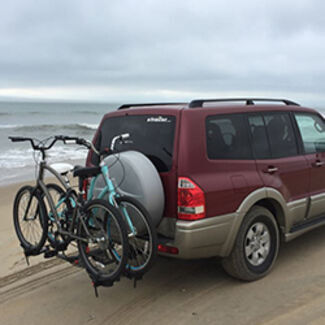
Mark T.

10/22/2015
Bearings working out great a year later still...
Was shorted one bearing on my order but etrailer sent one out right away.

Bearings have held up great after a year of use, great quality product.
Excellent price on these bearings which are hard to find where I live.
The bearings arrived undamaged and I installed them with no problems.
See what our Experts say about this etrailer Trailer Bearings Races Seals Caps
- Replacement LM11949 Bearing and LM11910 Race NeededWe do carry that bearing and race you're looking for: - Replacement Trailer Hub Bearing # LM11949 - Replacement Race for LM11949 Bearing # LM11910 When it comes to hubs that use this bearing we have a 2.5K and a 3K agricultural hub that use this bearing as well as the # LM67048 bearing: - Dexter Trailer Idler Hub for 2,500 lb Axles # DX22XR - Trailer Hub Assembly for 3,000 lb Axles # AH15450ECOMP The 2.5K has a 5 on 4-1/2" bolt pattern while the 3K is a unique hub that uses a 4...
view full answer... - Recommended Replacement For Older 2000lb Axle W/ Obsolete LM11949 Inner and Outer Bearing ComboI have a replacement axle option for you, but unfortunately there are no hubs available that use inner and outer bearings # LM11949 as that is not a bearing combination that has been commonly used in a while. It may be possible to find some new old stock online, but I was unable to find any. Depending on how stuck the race is, a automotive repair shop may be able to remove the stuck race for your so you can just replace the race and bearings and reuse the hub. If you can get the race removed...
view full answer... - Availability Of Replacement Hub For Older Axle W/ L68149 and LM11949 Bearing CombinationI have a replacement axle option for you, but unfortunately there are not any hubs currently produced that use inner bearing # LM67048 (1-1/4" I.D.) and outer bearing # LM11949 (3/4" I.D.) and have the 5 on 4-1/2" bolt pattern. If your current hubs are still useable I recommend just replacing the bearings and sticking with them as that will be the most cost effective, though you will need to use wheels with the 4 bolt pattern. If the hubs are damaged and cannot be removed the only option...
view full answer... - Finding Replacement Wheel Bearings for Log Splitter With a 3/4 Inch Diameter SpindleThe reason we recommend folks use a digital or dial caliper to measure the bearing ID is because it's essential that the measurement be highly accurate. Using bearings that don't fit perfectly can lead to all kinds of problems. Typically, a hub will use a different inner and outer bearing, with the inner bearing being larger. To determine which seal is used with a particular bearing, you need to know the outside diameter of the race used with that bearing. The LM11949 uses a LM11910 race...
view full answer... - How to Remove LM11949 Trailer Bearing for RepacementYou need to pull the hub off of the trailer spindle. This will remove the bearing and make it easier to check to make sure everything is greased properly. Be sure to pick up the following parts so you get both the bearing and the race: - Bearing # LM11949 - Race # LM11910 I also recommend making sure all of your bearings are in good shape. If the one you're replacing is worn out or became damaged then there's a good chance the others are close to the same condition.
view full answer... - Availability Of Trailer Hub With .75" Outer And 1.25" Inner BearingsI do have one hub that uses a .75" ( # LM11949) outer and a 1.25" ( # LM67048) inner bearing. This bearing combination is uncommon these days, but we have the hub # DX22XR. This is a 5 on 4-1/2" idler hub for a 2,500 lb axle. Bearings, seals, races, grease cap and lug nuts are all included. We also have a few sizes of wheels that will go with this; 15" wheel - # AM20422 14" wheel - # AM20365 13" wheel - # AM20253 12" wheel - # AM20132 We can also provide tires for any size trailer wheel...
view full answer... - Trailer Hub Recommendation with Bearings LM67048 and LM11949We do have the agricultural hub part # AH15450ECOMP which uses the bearing numbers you mentioned of # LM11949 and # LM67048. The grease seal included has a 1.5 inch inner diameter.
view full answer... - How To Determine What Hub Assembly is Needed With a Bearing Inner Diameter of 3/4 InchThe Dexter Trailer Hub Assembly - 4 on 4, part # 8-91-05UC1, uses the # L44649 bearing as the inner and outer bearings. The inner diameter of the bearing is 1.063 inches (1-1/16). The only bearing I have that has a 3/4 inch inner diameter is the Redline Bearing, part # LM11949, which is used as an outer bearing on the Agricultural Hub Assembly - 4 on 5, part # AH15450ECOMP. This is a hub that has a 4 on 5 inch bolt pattern and is used for low speed (less than 20 mph) agricultural applications....
view full answer... - Finding Correct Bearing Buddy for Camper TrailerTo determine which Bearing Buddy protectors fit your trailer you need to measure the hub bore on the trailer's hubs. Use a digital caliper to be as exact as possible. Once you have that measurement use the link I attached to find our complete selection and choose the one that fits the measurement you took. For example, part # BB1781 fits a 1.781 inch hub bore on a hub that has outer bearing # LM11949
view full answer... - Replacement for Hub With LM67048 and LM11949 BearingsWe have one hub that matches your bearing combination. The # AH15450ECOMP uses a # LM67048 inner and # LM11949 outer bearing. This hub is intended for 3,000-lb trailer axles with agricultural applications. The bolt pattern is also 4 on 5 so you will need to double check to see if that matches your current hub. If it is a 4 on 4 we don't have anything that matches.
view full answer... - Bearing Kit for Older Trailer Hub with LM67048 Inner and LM11949 Outer BearingWe don't offer a kit for that hub, but we definitely have the bearings and races and possibly the seal which can be purchased individually. You'll need the # LM67048 bearing, its # LM67010 race and the # LM11949 bearing and its # LM11910 race. I don't have enough information to determine the grease seal you'll need, but it'll have an outer diameter of 2.328 inches. We offer two seals with this OD. You can determine if one of them will work for you by using a digital caliper like # PTW80157...
view full answer... - Replacement LM11949 Bearings and Leaf Springs For Older Boat TrailerI have another option for you, but the # LM11949 bearing combination your older boat trailer has is obsolete and there are no replacement hubs available any more. If the hubs are still useable you can just replace the bearings with # LM11949 and reuse it, but if the hubs are not useable the only option would be replacing the axle entirely. Assuming the hubs are reusable then for replacement leaf springs the closest option is the 4-Leaf Slipper Spring w/ Radius End for 2,000-lb Trailer...
view full answer... - Replacement Hub with LM67048 Inner Bearing and LM11949 Outer BearingBased on the inner and outer bearing numbers you provided (thank you!) the correct trailer hub assembly for your utility trailer is the # DX22XR. This hub does use the same # LM67048 inner bearing and # LM11949 as your existing assemblies. It is designed for 2,500 pound axles. The bearings, races, and grease seal are included. I wasn't able to pinpoint the dimensions on your current grease seal based on the part number you gave. The seal included with this particular hub has an inner...
view full answer... - Replacement 5 on 4 3/4 Hub With LM67048 Inner Bearing and LM11949 Outer BearingWith your hub having an inner bearing # LM67048 and outer bearing # LM11949, it sounds like you have an agricultural style hub, like the Redline Trailer Hub Assembly # AH15450ECOMP. However, this will have a 4 on 5 bolt pattern and this will be the only bolt pattern this hub is offered in, unfortunately. With that being said, the best option we can recommend will be to replace your axle with something that uses more common parts. Though you will need to measure a few things, picture included,...
view full answer... - Replacement Hub Assembly That Uses Inner Bearing LM67048 and Outer Bearing LM11949Currently the only hub we carry that uses the Inner Bearing # LM67048 and Outer Bearing # LM11949 is the Trailer Hub Assembly # AH15450ECOMP. This is a idler hub that is to be used on 3,000lb axles. It has a 4 on 5" bolt pattern and uses threaded bolts rather than lug nuts to hold on the wheel. The bearing races are preinstalled so you will only need the bearings listed above, Grease Seal # SL150 and Grease Cap # TRAG-DC-196.
view full answer... - Which Bearing Buddy Will Fit Trailer with Hub Bore Diameter of 1.745The Bearing Buddy Bearing Protectors # BB1781SS represents the closest dimension to the measurement you provided that we currently have available. These are designed to fit 1.781 inch hub bores. If you are able to give me the outer bearing number that is installed on your trailer, I can check to make sure if this Bearing Buddy will work for you. The bearing number should be stamped onto the bearing itself. This Bearing Buddy works with outer bearing number # LM11949. I have also attached...
view full answer... - Trailer Hub That Uses Bearings LM11949 and LM67048Both replacement trailer brakes and hub/drums should be selected based on the axle weight rating. The best way to select replacement hub/drums is to pull one of the hubs and remove its inner and outer bearings to obtain their part numbers. This is the easiest method to find a compatible hub. When not available measurements can be used but these need to be very precise, to the nearest thousandth of an inch, such as 1.234-inches. We do carry one bearing with an inside diameter of 0.75-inches,...
view full answer... - Availability Of A Trailer Hub With 1.25" And 0.75" BearingsWe do carry one hub that fits your description with part # DX22XR. This is a 5 on 4-1/2" idler hub that uses the # LM67048 (1.25" inner diameter) inner bearing, and a # LM11949 (0.75" inner diameter) outer bearing. This is a fairly uncommon bearing combination, this is going to be the only hub we have available with those sizes.
view full answer... - Axle-Less Trailer Suspension Kit to Provide Increased Ground Clearance on Older Horse TrailerThe first thing you want to do as you plan updating components on your trailer is confirm the trailer's gross weight rating (GVWR) and its axle weight rating. These matter to both hub/drum and brake selection. The Rice Richardson horse trailers I found online were smaller tandem (dual axle) types and appear to have been made in the UK. Updating the axle will typically be your best bet for the long term. There are available bolt-on axle-less trailer suspension kits from Timbren that provide...
view full answer... - Trailer Bearing Availability with Inner Diameter of .75 inch and 1.25 inchThe fact your outer bearing fits on a .75 diameter spindle means we aren't going to have a standard bearing kit to fit since that's not a standard dimension. Can you get me the C dimension as well? It could be that you need the part # LM67048 with a race # LM67010 which has an inner diameter of 1.25 and # LM11949 with race # LM11910 which has inner diameter of .75 inch.
view full answer... - Which Grease Seal for LM11949 Bearing and LM11910 Race on Utility Trailer with No-Lug HubWe do not have any grease seals that match your dimensions. When part numbers are not visible on the old grease seals taking measurements of the spindles themselves is the next best option. But if you took your measurements on the old grease seal this could be the reason for no match since the seals may become deformed over time. You will obtain more accurate measurements using a precision dial caliper on the spindles themselves. If you can re-check the spindle dimensions using a precision...
view full answer... - Choosing Correct Bearing Buddy Size for 2001 Coleman Taos Tent CamperThe particular bearing buddy you reviewed, part # BB1781, fits a hub bore of 1.781 inches and an outer bearing number # LM11949. Trailer and camper manufacturers may use different components in their products from one production run to another, so the only sure way to know what bearings are used in your Coleman Taos camper is to pull the wheel and hub and check the outer bearing number. Please refer to the photo provided. The next best method is to measure the hub bore using a digital...
view full answer... - Replacement Hub for 1986 Shorelander Boat TrailerBased on the measurements you provided you have # LM67048 inner bearings and # LM11949 outer bearings. There is only one hub that would fit with a 5 on 4-1/2 inch bolt pattern, which is the # AH15450ECOMP Trailer Hub Assembly. This is designed for agricultural use and speeds less than 20 mph so I would not recommend using it as a replacement for the hub on your boat trailer.
view full answer... - What Race Will Work WIth Bearing Number LM11949With The Bearing # LM11949 the race that we have that will work with it is Race # LM11910. The outer diameter of this race is 1.781 Inches. The closest race outer diameter we have to 1.940 is race # L44610. The outer diameter of that race is 1.980. We do not have a race that has an outer diameter of 1.940. The LM11949 bearing is not compatible with the L44610 race. I will leave a review link below with the specs of the race.
view full answer...
Do you have a question about this Trailer Bearings Races Seals Cap?
Info for this part was:










At etrailer.com we provide the best information available about the products we sell. We take the quality of our information seriously so that you can get the right part the first time. Let us know if anything is missing or if you have any questions.








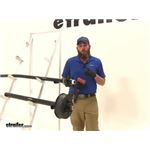
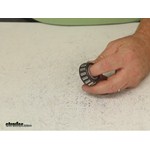





















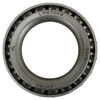



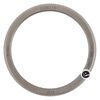


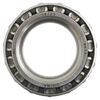















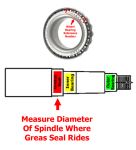
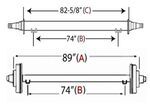
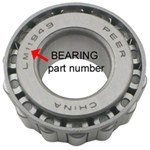
Kevi
7/12/2014
BEARINGS ARE GOOD. I HAVE RECOMMENDED Etrailer TO OTHERS..